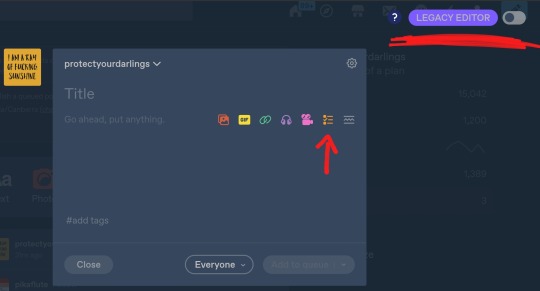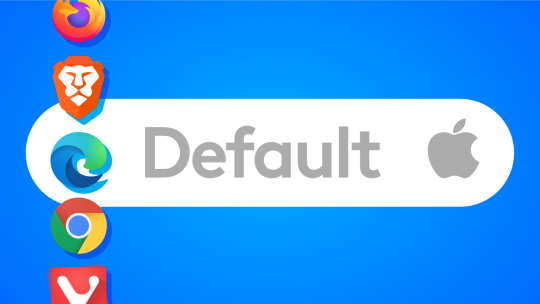#chrome ios
Text
إصدار Chrome APK تنزيل أحدث إصدار للجوال
قم الآن بتحميل تطبيق Google Chrome APK chrome apk مجانا على جهاز أندرويد للاستمتاع بجميع ميزات هذا المتصفح المميز. قم الآن أيضا بربط متصفح chrome android Google Chrome للهاتف المحمول مع متصفح جهاز الكمبيوتر الخاص بك.
29 notes
·
View notes
Text
إصدار Chrome APK تنزيل أحدث إصدار للجوال
قم الآن بتحميل تطبيق Google Chrome APK chrome app apk مجانا على جهاز أندرويد للاستمتاع بجميع ميزات هذا المتصفح المميز. chrome ios قم الآن أيضا بربط متصفح Google Chrome للهاتف المحمول مع متصفح جهاز الكمبيوتر الخاص بك.
30 notes
·
View notes
Text
Web apps could de-monopolize mobile devices

Mobile tech is a duopoly run by two companies — Google and Apple — with a combined market cap of $3.5 trillion. Each company uses a combination of tech, law, contract and market power to force sellers to do commerce via an app, and each one extracts a massive commission on all in-app sales — 15–30%!
This is bad for users and workers. Many companies’ gross margins are less than 30%. In some categories, that means there’s no competition. Take audiobooks: publishers wholesale their audiobooks to retailers at a 20% discount, so a retailer that sells its audiobooks through an app, paying a 30% commission, will lose money through every sale.
This is why the only convenient mobile audiobook stores are Apple Books (a front-end for Amazon’s Audible) and Google Books: Apple doesn’t have to pay the Apple tax, and Google doesn’t have to pay the Google tax, and that means that Apple and Google can demand crippling discounts and preferential treatment from publishers and independent authors.
The app tax is a tax on the workers whose creative works are sold on mobile platforms, because creative workers have the least bargaining power in this monopolized supply-chain. Our publishers can squeeze us — and the editorial workers, narrators, and sound technicians who work on our books — to make up the difference.
Independent authors who sell directly on these platforms, meanwhile, have even less leverage and get even worse terms. Things aren’t much better at the other end of the supply-chain, either: while firms prefer to wring concessions out of their workers and suppliers, they’re not averse to raising prices on customers, providing that all the competitors do so as well.
Since every competitor is also selling through an app store and either paying a direct app tax or ceding margin to the mobile duopoly as a condition of selling in their in-house, pre-installed stores, they all have the same incentive to raise prices.
Economists call this the monopsony problem (or, since we’re talking about two companies, a duopsony or oligopsony problem). That’s an unwieldy and esoteric term, so Rebecca Giblin and I coined a much better one, and wrote a book about it: Chokepoint Capitalism:
https://chokepointcapitalism.com/
Theoretically, there’s a way to avoid the app store chokepoint: web apps. These are part of the HTML5 standard, and if a browser fully implements that standard, then developers can make a self-encapsulated “app” that’s delivered in the browser, complete with an icon for your home screen, capable of doing anything an app store app can do.
A company that wants to sell stuff without paying the app tax could hypothetically deliver a web app that the user could download and install via their browser. This doesn’t just avoid the app tax, it also overrides the app stores’ editorial control, like Apple’s decision to block privacy tools in China to aid in state surveillance.
But you can’t have a web app without a web-app-compatible browser, and you can’t get a web-app-compatible browser in Apple’s App Store. The only browsers permitted in the App Store are those based on WebKit, the browser engine behind Safari. This means that every browser on Ios, from Firefox to Edge to Chrome, is just a reskinned version of Safari.
That’s a problem, because Webkit suuuuuuucks. Without the discipline imposed by either regulation or competition, Apple has systematically underinvested in Webkit, so that major bugs remain unaddressed for years and years. Some of these bugs are functional — Webkit just doesn’t act the way its documentation says it does — but others represent serious security vulnerabilities.
This is an important point: app store proponents say that denying users the right to choose where they get their apps and excluding competitors is necessary, the only practical way to prevent security risks to users. But while app stores can prevent the introduction of insecure or malicious code, they can also block the introduction of code that fixes defects in the manufacturer’s own security.
Mobile companies don’t want insecure code on their platforms, but they also don’t want to erode their profits. An Iphone with a working VPN app is more secure than one that lacks that app, but if that Iphone is owned by a Chinese person, it endangers Apple’s access to low-waged Chinese labor and 350 million affluent Chinese consumers.
Likewise, a third party might create a browser engine that corrects the security defects in Webkit, but if Apple allows users to install such a browser engine, they will lose the ability to extract billions through the app tax.
Companies never solely pursue their customers’ interests. Instead, they seek an equilibrium that allocates as much value as possible to their shareholders. This allocation is limited by both competition (the fear that a bad service will drive customers to a rival) and regulation (the fear that a bad service will attract crushing fines).
The less competition and regulation a company faces, the more value it can take from its users and give to its shareholders. Here, mobile platforms have it easy: they don’t have to worry about competition because of regulation. Laws like Section1201 of the Digital Millennium Copyright Act (DMCA) and Article 6 of the EU Copyright Directive (EUCD) make it illegal to jailbreak a phone to install third-party apps. Jay Freeman calls this “felony contempt of business model” — that is, the government will punish your competitors for trying to compete with you. Nice work if you can get it.
As the old joke goes, “if you wanted to get there, I wouldn’t start from here.” The rules that should promote better corporate conduct (through competition) instead encourage worse behavior, by putting companies in charge of who gets to compete with them, in the name of user safety.
Meanwhile, users are increasingly trapped inside walled gardens, because their media, apps, and data are locked up in mobile silos and switching to a rival means enduring the switching costs of leaving it all behind. Mobile companies claim to have built fortresses to keep bad guys out, but those high walls make fortresses into prisons that keep customers locked in.
But anything that can’t go on forever will eventually stop. The manifest unfairness and insecurity of the regulation-backed walled garden model has attracted the interest of new trustbusters, competition regulators from China to the EU to the USA to the UK.
The UK plays a key role here. The country’s Competitions and Markets Authority boasts the largest workforce of technical experts of any competition regulator in the world: the CMA’s Digital Markets Unit has 50+ full-time engineers, which allows it to produce the most detailed, most insightful market investigations of any nation’s competition regulators.
https://www.gov.uk/government/collections/digital-markets-unit
(Don’t get too excited, though: in keeping with the UK’s abysmal standard of government competence, Parliament has yet to pass the long-overdue secondary legislation that would give the DMU its own enforcement powers. Ugh.)
Last June, the CMA proposed a market investigation into cloud gaming and mobile browsers (gaming is the largest source of app store revenue and cloud gaming is a way to avoid the app tax, so it’s a closely related issue):
https://www.gov.uk/cma-cases/mobile-browsers-and-cloud-gaming
There were many significant submissions over this proposal, including comments that EFF legal intern Shashank Sirivolu and I drafted:
https://www.eff.org/document/comments-electronic-frontier-foundation-cmas-inquiry-mobile-browsers-and-cloud-gaming
Many commenters (including EFF) proposed that the CMA should intervene to improve the state browser engines competition on Ios and Android (Android allows multiple browser engines, but doesn’t give them the same hardware access that Chrome and its Blink engine enjoy).
This argument seems to have landed for the CMA. Today, they announced that they would go ahead with a full-fledged market study into mobile browsers and cloud gaming:
https://assets.publishing.service.gov.uk/media/63984ce2d3bf7f3f7e762453/Issues_statement_.pdf
The most obvious outcome of this study would be an order forcing the mobile vendors to open up to full-featured, alternative browser engines. This is compromise solution, between forcing open app stores onto the platforms — which would mean forcing Apple to allow sideloading and policing Google’s use of contracts to limit third-party stores — and doing nothing.
A browser engine mandate is less satisfying than open app stores, but it is also more achievable, and easier to monitor and enforce. With Android, Google proved that you don’t have to use hardware locks to prevent third-party app stores — you can use a hard-to-detect web of contracts and incentives to create an app store monopoly that’s nearly as airtight as Apple’s.
But policing whether a platform permits rival, full-featured browser engines — ones that enable web apps and cloud gaming without paying the app tax — is much easier. Also easier: developing objective standards for evaluating whether a browser engine is secure and robust. Open Web Advocacy’s criteria are a great starting point:
https://assets.publishing.service.gov.uk/government/uploads/system/uploads/attachment_data/file/1118238/Open_Web_Advocacy_-_Consultation_response_-_Publication_version.pdf#h.q9nder968wzm
The CMA announcement is welcome, but has some gaps. It under-emphasises the importance of hardware access (for web apps to compete with native apps, they need full hardware access), and could leave new browser engines at the mercy of the existing review teams that review all the other apps in the app store (who reject rival browser engines out of hand).
Meanwhile, while I was writing this article, Mark Gurman published a jaw-dropping scoop in Bloomberg: Apple will open its Ios platform to rival app stores by 2024, in order to comply with the EU’s Digital Markets Act (DMA):
https://www.bloomberg.com/news/articles/2022-12-13/will-apple-allow-users-to-install-third-party-app-stores-sideload-in-europe
I’m still absorbing this news, but I think this complements the CMA browser engine work, rather than rendering it redundant. Alternative app stores don’t necessarily mean alternative browser engines. Apple says it will have security standards for alternative app stores, and these standards could well include a ban on browser engines. At a minimum, it’s clear that different levels of scrutiny need to be applied to apps, app stores, and browser engines, as each one poses different threats and opportunities.
[Image ID: London's Canary Wharf, a high-rise business district that is home to the UK Competition and Markets Authority. The colours of the buildings have been inverted, and the sky has been filled with a Matrix 'waterfall' graphic. In the foreground is an ogrish giant, standing at a console, yanking on a lever in the shape of a golden dollar-sign. The console is emblazoned with the logos for Chrome and Safari. The ogre is disdainfully holding aloft a mobile phone. On the phone's screen is a Gilded Age editorial cartoon of a business-man with a dollar-sign for a head. The phone itself is limned with a greenish supernova of radiating light.]
#pluralistic#digital markets act#dma#ios#android#cloud gaming#gaming#mobile gaming#blink#chrome#interoperability#duopoly#comcom#safari#mobile#antitrust#apple#browser wars#competition and markets authority#browser engines#adversarial interoperability#trustbusting#open web advocacy#digital markets unit#google#competitive compatability#interop#competition#monopoly#uk
103 notes
·
View notes
Text

PICTOCHAT IS BACK
3 notes
·
View notes
Text
All the muses I got (some documents will be updated soon and until i do it, feel free to ask about them. The blogs are not tagged because of shadow ban):
Himiko Yumeno (from @wickedserpent)
Mikan Tsumiki (from @wickedserpent)
Withered Bonnie (from @breakingbunny )
Phantom Foxy (new addition)
Homicidal Liu + Sully Woods (from @bloodysurvivors
Chrome Dragon (from @land-talon)
Ayu/Gummy Dragon (from @land-talon)
Dracbite (from @land-talon)
Scout/Abraxas Dragon (from @land-talon)
Axel/Firebird Dragon (from @land-talon)
Zombie Dragon (from @land-talon)
Moneta/Dust Dragon (from @land-talon)
Academic Dragon (from @wickedserpent)
Angler Dragon (from @wickedserpent)
Shifty (from @wickedserpent)
Monodam (from @wickedserpent)
Dusk Shine (from @wickedserpent)
Georgia/Frostbite (from @lil-fantasymuses
Wingding/Austin (from @lil-fantasymuses
Ken (from @lil-fantasymuses
Kirara Hazama (new adition)
Mawizinea (from @lil-fantasymuses
Pyro Pony (from @lil-fantasymuses
#out of character.#ic.#himiko yumeno#mikan tsumiki#withered bonnie#phantom foxy#homicidal liu#Sully woods#Frank/Chrome#Ayu/Gummy#Dracbite#Scout/Abraxas#Moneta/Dust#Axel/Firebird#Legend/Academic#Io/Angler#Shifty#monodam#dusk shine#frostbite#Wingding#Ken#Mawizinea#Pyro Pony#Viggo/Zombie
2 notes
·
View notes
Text
you may have tumblr polls and not know it.
so apparently i have polls??! totally hidden, turns out. it all comes down to the fcuking legacy editor on desktop.
here is what i see on my desktop dash when making a new post:




no poll option anywhere in sight.
turns out the issue is this fucker right here:

i prefer the layout and control of the legacy editor so i always have it turned on. for whatever reason (probably being the early stages of a new feature) tumblr polls is not available/does not appear if you're using this.
to see if you have polls, switch the legacy editor OFF.

making posts in the the new editor you will see the orange poll option appear.
guys, this realisation almost fcuking broke me. for weeks(?) i've been waiting for some magic button to appear. now i wonder how long i've had the magic here all along and just didn't know it.
#how to make#tumblr polls#do i have tumblr polls? it's more likely than you think#.txt#tutorial#kinda#how to guide#and bc i use chrome on my tablet instead of the shitty af tumblr app i didn't realise the poll option#in the android app is visible soon as you make a new post. it's right there.#and as for ios: bc the screen is too fcuking small you have to scroll along the post options until the poll icon appears#it's all fcuked and unnecessarily hidden but hopefully @staff will improve the accessibility soon
33 notes
·
View notes
Text
"I see macOS 👀" i mean yeah we are web developers; what do you expect us to use? cuneiform tablets?
#this is a JOKE many self respecting web developers use desktop linux#or iOS#or chrome OS#or a stick in the sand on an abandoned beach#or a jailbroken wii u
4 notes
·
View notes
Text
The New Apple Watch has Arrived!
Get now : https://sites.google.com/view/winningmoment247
#hiroshi fujiwara#chrome hearts#apple watch#apple#silver#sterling silver#New Zealand#jewelry#ios14#ios 14#homescreen#ios homescreen#ios widget#widget#apple iOS#asthetic#scandistyle#widgetsmith#shortcut#singapore#just bored#design#ios 14 ideas#ios ideas#ios design#not professional just decorating#apple ios 14#ios 14 cute#ios cute#ios simple design
5 notes
·
View notes
Text
Oh genius idea, I can just block the 'CHROME IS THE SUPERIOR BROWSER' ads on youtube.
And the 'OBVIOUSLY YOU AS AN ANDROID USER WANT TO SWITCH TO IOS' ads.
#literally the first youtube ad i got after uninstalling chrome?#INSTALL CHROME IT'S GREAT FOR PRIVACY#like no. it's not. that's why i just uninstalled it.#first ad i got after getting a brand new android?#IT'S EASY TO SWITCH FROM ANDROID TO IOS (OBVIOUSLY THE SUPERIOR DECISION)#like no. absolutely not. i switched *away* from ios to get away from all it's user hostile bullshit.
5 notes
·
View notes
Text
anyone having trouble seeing spotify links on desktop? i'm on mac and using chrome if that matters
#don't bully me for being a mac and chrome user i know it's cringe#i do need to switch to firefox tho just keep procrastinating#also it works fine on mobile (ios) it's just desktop that's being weird#soapbox
2 notes
·
View notes
Text
YouTube is apparently testing up to TEN unskippable ads for their platform, so now’s as good a time as ever to switch to an adblocking experience.
Windows, macOS, & Linux: Firefox + uBlock Origin
Android: Firefox + uBlock Origin
iOS: Brave Browser* or Safari + 1Blocker (paid, but indie dev)
#* I personally do not support or endorse Brave Browser outside of iOS#in iOS ALL browsers are Safari reskinned#as per Apple’s rules#therefore#Brave on iOS is just Safari with an adblocker#Outside of iOS however it uses google’s chromium engine and therefore should be avoided#especially since Google is planning on crippling adblockers on chromium in the near future#I use Firefox on iOS as my daily driver and then just have Brave acting as my YouTube app#I just sign into my YouTube on Brave and leave the page open#I don’t use it for anything else#|||#google#fuck google#chrome#google chrome#firefox#web browsers#adblock#YouTube#fuck youtube#brave browser#Safari#ads#fuck ads
4 notes
·
View notes
Text
BEETV

Movies have gotten expensive, like really expensive. Certain days tickets are higher than others not including the money you have to pay for snacks cause those are also expensive. Not sure what it cost where you live but our small popcorn is $12 with a small drink and that is way to much for that. I could of went to the $1 or .99cent store and got it way cheaper than that.
We have found an app, that is free and it allows you to watch new movies like a day after they come out of theaters which is nice. Why have to go out when you can watch movies in the comfort of your own home? I mean date nights are nice but it can be expensive on the pockets right now in which we understand.
You can use this app on your firestick, android, iOS, pc(using blue-stack), Nvidia shield which is nice. If you have a google stick or chrome cast, you can stream it from your phone and cast it to your tv. The app is called BeeTV and it pretty much allows you to watch any movie and tv show that you want to.
This site is a free site to watch movies on.
I am so glad I found this site because with me being sick and not really able to go to places, this allows me to watch movies without having to worry about the “What if I can’t sit here long?” “Am I going to get sick in the middle of the movie and have to leave or miss it?”
Check out the link below and get it today!
Get BeeTV here. It tells you how to install it and what to do.
#TV shows#new movies#free movie download#free movies#new tv shows#BEETV#Android#App For Movies#Bluestack#Chrome Cast#Firestick#Free Sites To Watch Movies On#Ios#Mods#Movie#Movie Night#Movie Theater Movies#Movies#New Movies#New Tv Shows#Nvidia Shield#Pc#TV Shows#beetv
0 notes
Text
Favorite Flavor of Apocalypse?
Which books have kicked the world in the shins in a most entertaining fashion?
Starvation Island will be the concluding installment of the End-User Jack series, and I get to explore the cataclysm which has afflicted Jack’s real-world home known as the Tower.
It got me thinking about how my favorite post-apocalyptic novels handled their end-of-the-world scenarios, and which ones did it best.
In my books, I’ve brought the world to the brink with genetic engineering…

View On WordPress
#amwriting#apocalyptic fiction#author#blood of the masked god#book#crimson gauntlet#dawn moriti#end-user jack#fallen stars#film#gerhard gehrke#io adler#last mansion#litrpg#novel#old chrome#sci fi#science fiction#scifi#starvation island#writing
0 notes
Note
♦ to describe a plot that you’ve been wanting to do.
Get to know the rper
To be honest, while it depends on the character, I mostly want the muses with wrong mindsets, such as Io, Frank, Shifty, Sully, to be confronted with the actual truth. Io enables anything and everything humans do under the sun because "they are hollier than dragons". Frank only cares about someone's appearance and beauty, instead of what they can or can't do. Sully's stuck at and can't move on from the past, only coping with it by killing or hurting others. The normalized violence in his childhood, along with his abandonment to the orphanage, prepared Shifty’s disloyal and stealing nature. All of them needs a reality check, and I need someone to do it.
To get more specific, I need a crossover for Withered Bonnie to be discovered and cared by an adult or child. Also I need someone to comfort child!Mikan after a bad day in school. Other than all, I live for crossovers where I get to change the species of my muses to fit into the universe.
#out of character.#answered#//r3ligious tr@uma#//cult#io/angler#frank/chrome#shifty#sully woods#withered bonnie#mikan tsumiki#roleplay starter
1 note
·
View note
Text
In the latest iOS 17.4 drop, Apple is now allowing third-party web engines and will prompt users to set a default browser
Apple is implementing significant modifications to the way web browsers function on iPhone and iPad for customers in the EU. With the latest drop of iOS 17.4, users will have the option to set their preferred default browser when they first open Safari, and browser makers will be able to utilize other browser engines.
Firstly, there is a change to default browsers. Third-party browsers have been…

View On WordPress
#Apple#brave#Brave Browser#Chromium#Firefox#Google Chrome#iOS#iOS 17.4#Microsoft Edge#Vivaldi#Web Browser#Web Browsers
1 note
·
View note
Text
0 notes